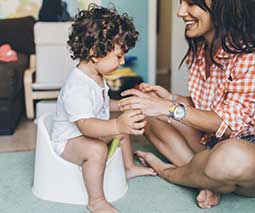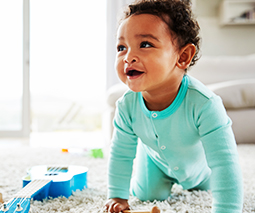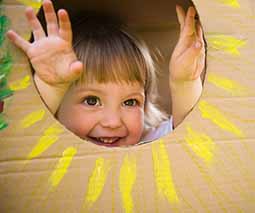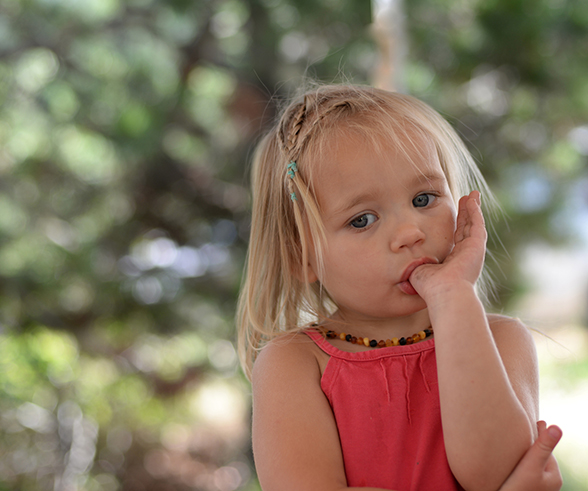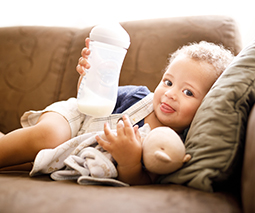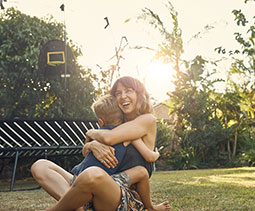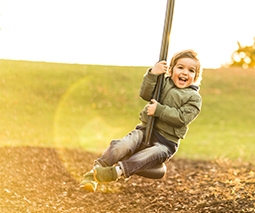Maggie Dent: “Please help all little boys learn how to be good friends”
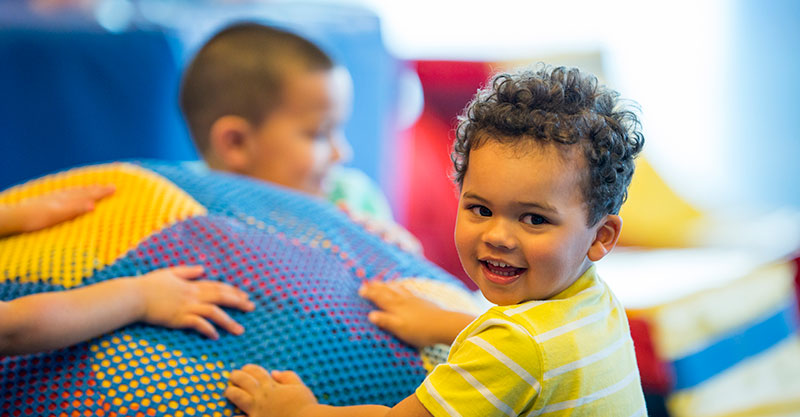
Many boys have told me how they struggle to understand the nuances of being a good friend: indeed many find it confusing and often their attempts to show their affection or desire for connection end up in moments of public embarrassment.
For the purposes of this blog, I will be focusing on same-sex friendships simply because there’s a lot to cover. This in no way diminishes the value of friendships with girls and indeed that deserves a whole blog on its own, as it is an incredibly valuable relationship in any boy’s life. Having a girl mate who is not your girlfriend is a huge asset in a boy’s life, especially through the tumultuous teen years.
The research is significant and well-respected that acknowledges that girls generally develop their capacity to communicate well before boys.
The struggle for boys
“Boys speak their first words later than girls and their speech does not become 99 percent comprehensible, often until they are four years old – a full year later than girls. A preschool girl has a large vocabulary, has better grammar, and forms longer sentences than a boy of the same age.” — Ruth Hanford Morhard, Wired to Move (2014).
For healthy human relationships to begin, there must be a way for two individuals to connect. I am still astounded by the capacity of little girls to have real conversations that explore things that they have in common, help them play games with negotiation, and to experience moments where they squeal with delight that are mutually bonding.
They also tend to have a better grasp on the non-visual cues of building rapport, such as smiling, waving and hugging. They often express their love and affection for each other well before they’re three and yes, they can nag their parents endlessly so that they can spend more time with their special friend.
Interestingly, there has been a lot of research on the origins and nature of same-sex friendships, but the most renowned study was done in 2009 by the National Institute of Mental Health (NIMH) and Georgia State University with the use of MRIs (Functional Magnetic Resonance Imaging). This was the first time scientists looked at what actually happens inside the brains of children ages 8 to 17, in response to potential friendship opportunities.
The results showed a significant difference in the way boys and girls respond to the anticipation of making a friend. Various areas of girls’ brains (areas associated with reward, hormone secretion, social learning and subjective feelings) lit up with the prospect of a new friendship, while the boys’ brains showed almost no activity and even, in some cases, decreased activity.
There are many ways to interpret this information, and scientists are reluctant to pinpoint causation, but it’s safe to say that there’s a lot going on for girls in the face of friendships. It may also suggest why many little boys struggle in the friendship world.
It also suggests that we need to support them on this journey as best we can, and don’t just assume that it will happen in a way that is similar to girl friendships.
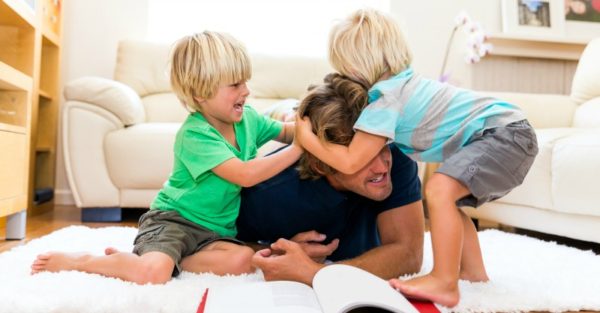
Boys are vulnerable little humans
The emotional world can be confusing for all toddlers and children under 5, however, it is especially confusing for boys. Many early childhood educators have told me about the sad/angry boy syndrome. This occurs when a boy who is feeling distressed when his mum leaves him, can look sad for a few moments and then quickly change to anger and can kick toys, push other children over and shout loudly.
Helping boys to understand and allow their more vulnerable feelings like sadness, grief or feeling misunderstood is an area where a lot of work needs to be done. It is absolutely okay for a boy to cry, or to need a hug, or to reach for a safe grown up in order to find soothing comfort.
My heart almost breaks when I am in an early childhood setting when I see a little boy being sent to the ‘naughty corner’ because he is crying for a valid reason. I have heard in the last year of a four-year-old boy told ‘to use his words’ to explain his distress – something very few four-year-old boys are developmentally able to do – and when he was not able to do this, he was told to go outside because he was a “sook”!
Angry little boys who have been unable to express vulnerable feelings can become very angry men, also unable to express vulnerable feelings.
One of the world’s leading boy experts, Dr William Pollack, author of Real Boys: Rescuing Our Sons from the Myths of Boyhood, believes that girls communicate more, seeking attachment indirectly through activities or play. So for boys to develop the same sense of bonding, they need to spend significant amounts of time playing with other boys.
‘Playdates’ are a reasonably recent happening – in days gone by, there was more of an acceptance of children playing for hours either in each other’s backyards or at sporting events that occurred frequently. I can remember my boys playing in our backyard with possibly a few other boy mates with rarely any conversation occurring, however, a lot of strange noises that they seemed to all understand and they would be having fabulous fun.
This may be another reason why some of our boys are struggling with social anxiety: these lengthy play times have disappeared and even recess and lunchtimes at school are much shorter than they used to be. Also, many boys are infatuated with technology and this also diminishes the amount of time that they are spending connecting with other boys in real time.

The incredible power of play
The importance of play has huge benefits other than simply helping most boys discharge excess energy. Play also helps to create feel-good neurochemicals. Often they engage in play where they try ‘to kill baddies to save the goodies’. Maybe this is linked to the deep biological drives of early man, when killing a mammoth or sabre tooth tiger to protect the tribe, especially the women and children, was a top priority.
We need to accept this as valuable and not shame boys’ passion for guns, sticks and weapons. They may still need some guidance on how to play these games without causing harm to others, however banning these games altogether is unhelpful. We also need to teach boys to apologise when they hurt others – even when they never meant to.
These endless hours where boys play with freedom and autonomy are building the capacity to be able to read the invisible cues of friend versus foe. Indeed, pioneering play researcher, Dr Stuart Brown has written and spoken extensively about the importance of children developing a ‘play code’, which can only be developed with hours of play with other children.
This play code sets up an intuitive awareness that can be carried through into adulthood, and which can help us sense when we are in an unsafe place or there are unsafe people. Some think that the increased violence on our streets is a sign of a diminished play code in grown young men – especially those who have been senselessly violent – aka the coward punch. Food for thought.
“Without a play code we can badly misread social situations and interpret a threat incorrectly and without the ability to defuse the situation.” – Dr Stuart Brown, Play: How it Shapes the Brain, Opens the Imagination, and Invigorates the Soul (2009).
In my seminars about boys, I often share the story of the little boy who at the end of the day at kindergarten, when he realised his best little mate was leaving, ran up to him and punched him in the head.
In no way did this little boy mean to hurt his friend. However, at that moment his actions, which looked confusing to everybody, were an attempt to express how much he liked his friend and how much he was going to miss him. Many boy experts write about ‘aggression nurturance’ and many of you who have more than one boy in your home will know there is an awful lot of wrestling, jumping on top of each other and throwing things at each other.
Given that boys struggle with words to express their hunger to connect and to have fun, these actions are often designed as ways of showing their love of play, and in a seemingly warped way, the affection they feel for each other. Of course with siblings, this can be quite short lived!
These forms of physical connections can sometimes lead to painful exchanges that we can interpret as being intentional – often that is not the intention at all. Coaching our boys about the difference between intentional and accidental hurting of others is another important part of helping them develop a healthy play code.
This behaviour may also explain why a little boy sees his mum after class and runs at her really fast and nearly takes her legs out from under her. On some level, he is trying to express his love for her and how much he has missed her.
However, our challenge is to coach our boys into how to express these big feelings without hurting others.
The same goes for their boy friendships. Helping boys to create a welcoming strategy – and it can help to practice that many times so that he can remember it – can help alleviate some of these awkward boy moments. Giving a high five, having a secret handshake, teaching them to smile, and calling out ‘hello’ using their name are all great strategies to coach and teach.
Losing well
Learning to lose well is another thing many boys, especially our rooster boys, can struggle with. Playing many games with other children and grown-ups is an excellent way to build this emotional competence. Noughts and crosses, best of five shooting basketball hoops, snap card games, and many quick games like this expose boys to losing lots with humans.
To identify what disappointment is and what it feels like is an incredibly helpful thing for all children to learn. It helps when parents and educators can make mistakes and express disappointment in healthy ways, as this modelling is how many children learn how to make better choices in these emotionally challenging situations.
One of the ways that I have found boys cope with failing, losing or being unsure of what is expected of them at any moment, is to be silly or try to be funny. Humour is a very powerful way that boys defuse big ugly feelings, rather than using anger or being aggressive.
Yes, they have a passion for cheeky conversations around bums, poo and farts, which can be quite annoying at times – especially for their mothers.
The changing face of innocent fun
Young boys can often enjoy playing naked in quite an innocent fashion and can laugh endlessly as they have a farting competition. Sadly with the combination of the screen-driven world and the easy accessibility of pornography, we can no longer trust that this innocent play will stay innocent.
So another coaching that our boys need is around body awareness and protective behaviour. They need to know that touching another individual’s private parts is unacceptable – even with consent – when they are children.
There are many excellent picture books that you can access to teach this vital information to your boys, and while a lot of young boys may have never seen pornography, those who have can act out what they have seen without realising that it is not normal early sexual questioning and exploration.
Dr Joe Tucci of the Australian Childhood Foundation has reported a massive increase in enquiries of inappropriate sexual play with children under five, especially of a penetrative nature.
Finding your tribe
Boys who struggle to find someone to play with at long daycare or school can become angry and aggressive as a way to express their sadness and pain at feeling excluded. Even underneath the strongest rooster boy is an incredible sensitivity to being excluded and in the early years, this is a window of enormous potential to teach and guide our little boys into how to create friends.
I created an audio track to help children who struggle to make friends or ones who are too bossy. I Am a Good Friend explores welcoming and farewell strategies while guiding children on how to be kind and caring to others.
Friends ease transition
Not knowing anyone and being in an unfamiliar environment can trigger his survival instincts, and his behaviour and his capacity to make new friends may become a source of great conflict. The same can happen when transitioning to high school. Boys who have friends who will be there tend to transition better than those who do not.
Helping your son find someone else who has a similar interest is one of the best ways to help them make a new friend in a new environment.
Again, many boys in this situation starting a new high school find enormous comfort in gaming from the safety of their bedroom. Adolescence can be a lonely, bumpy ride without any friends in the real world, and it may be helpful communicating with the school’s student services team to see if they can help in some way.
It is the policy of many primary schools to try not to separate friends unless they feel they have become disruptive in class. However, some make mistakes when making these decisions.
Many boys have told me of their heartbreak at being separated from their special boy mate at school. Many times these boys felt powerless to express how hurtful this was. Often these boys became very angry and aggressive, often in their homes, and it took quite some time for their parents to realise how destructive this choice had become.
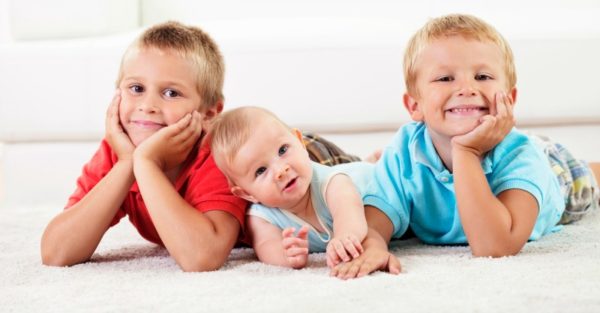
Bullies are not born they are made
Some feisty rooster children, our strong characters, have a tendency to be dominating, bossy and have an insatiable hunger to win or be first or best!
Some rooster children cannot only be strong and feisty, they can also have no or very little empathy. Children who become bullies have learnt how to be a bully from someone.
I firmly believe the first five years of life is where we have to invest time, energy and compassion in helping all children develop empathy and an understanding of how to be fair and kind.
There are many excellent books for children and teens that can help parents to do this. I also recommend the resources of Best Programs 4 Kids that show strategies and techniques parents can teach their children at home, to empower them to make helpful choices in social situations that are difficult and challenging.
We cannot expect our schools to be able to resolve all difficult social interactions, especially bullying, because it is difficult to resolve human conflict in any large space. And sometimes it is not bullying – it is childhood nastiness and we need to remember childhood nastiness is not bullying.
In normal childhood friendships, there will be moments where children will be spontaneously mean or nasty – heck, this happens with siblings a lot – and we need to help our children know how to bounce back from these ‘ouch’ moments.
I need to mention something that came up often in my counselling rooms as a reason that boy friendships disintegrated. We must stop this homophobic teasing of boy friendships. This can come from men as well as other boys, and it needs to stop. Calling boys who are close friends ‘gay’ or worse, has contaminated many boy friendships – and it again may have seemed an attempt at being funny without a planned intention to hurt – and yet it has.
My youngest son met his best mate at preschool. All the way through primary school, they tended to spend alternate weekends at each other’s houses and were rarely apart on weekends. These two young boys are now 28 years of age and even though they are both engaged to be married, their friendship is as strong as ever. They do remember having an argument once when they were nine and for this reason, when they headed off to university, they chose not to share a house in case they might have another argument!
As a parent you can do many things to support your older boy to develop friendships:
- Prioritise having his friends who are boys spend significant amounts of time in your home, especially in the early years from 2-8.
- Do everything you can to support their common interest – whether that be building go-karts, racing motorbikes, dance, having a band, playing a sport or surfing.
- Know that food can be a bonding experience for boys – ensure many loaves of bread are always available.
- Have gentle conversations at times with your son about how to be a ‘good’ friend.
- Teach your son to say ‘I’m sorry I hurt you’ – even when he never meant to.
- Help him to remember his friend’s birthday, and help him to know how to support his friend if an adverse event occurs in his friend’s life.
- Ask warmly about his friends from time to time – don’t interrogate, just ask.
- Express your affection for his friends.
- Always tell his friends they are welcome at your home and your door will always be open to them.
- Reassure your son that you will always love him, no matter what happens in life.
Please help all little boys learn how to be good friends – don’t leave it to chance. It is too important.
This article originally appeared on Maggie Dent.com.
